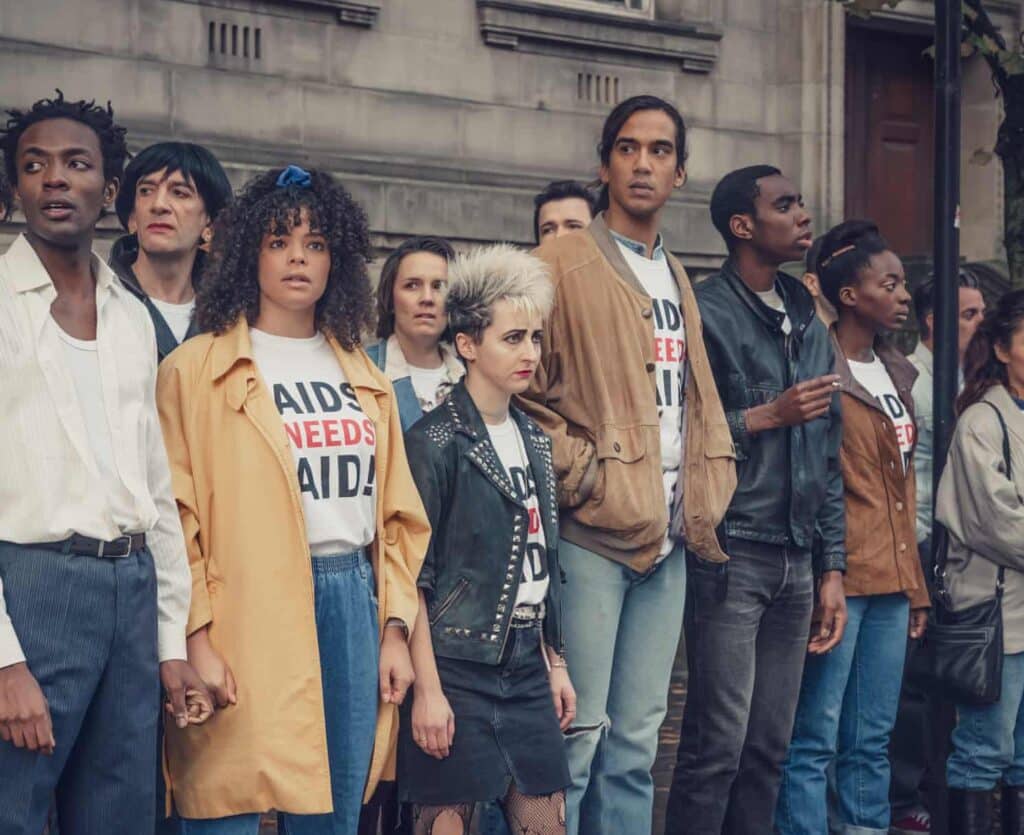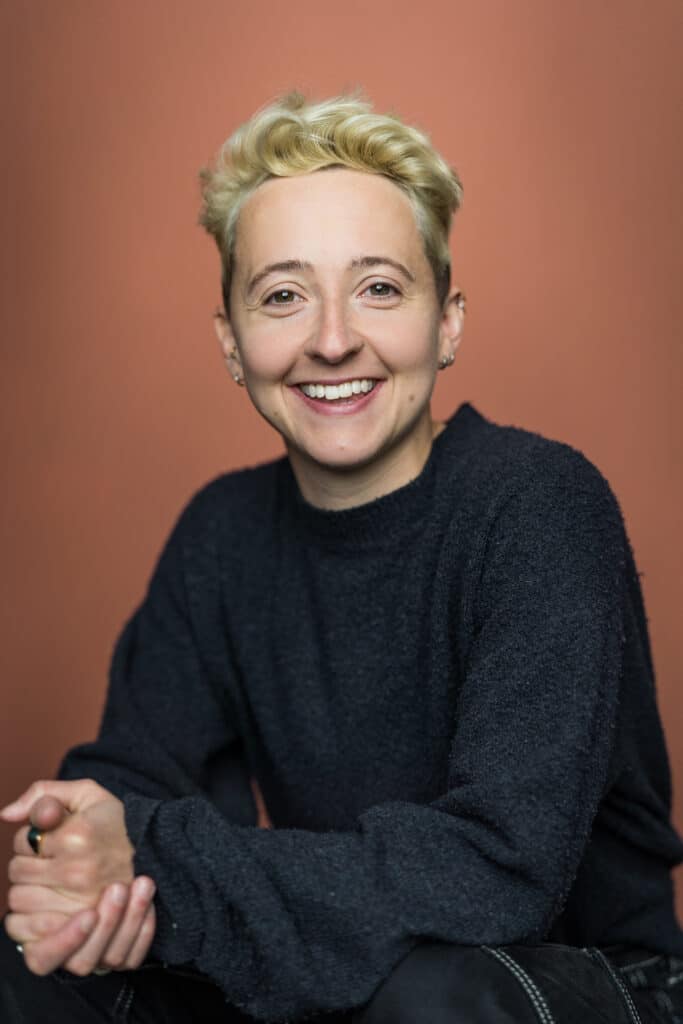It’s a Sin’s Georgia Bruce takes down ‘TERFism’ in searing play filled with trans representation

Georgia Bruce starred in It’s a Sin. (PH/Channel 4)
It’s a Sin star Georgia Bruce confronts transphobia, TERFs and the lack of non-binary and trans masc representation in their new play.
The actor and burgeoning playwright is shortlisted for the Bruntwood Prize for Playwriting, for their play Time, Like The Sea. It follows a lesbian, Linda, who lives in a once thriving, now desolate radical lesbian separatist community by the sea.
Now alone, her estranged grandchild Ky comes to visit with their girlfriend Scarlet and soon disrupts her worldview. Bruce confronts fierce debates around “TERFism”, trans rights and the views of older LGBTQ+ people head on.
“I was never finding parts for non-binary and trans masc people,” they tell PinkNews, “and while there are a few amazing people out there making work, I just haven’t seen enough of it.”
Their eagerness to see more representation on stage was the inspiration behind Time, Like The Sea.
“It was purely selfish. I wanted a play where I could see a load of lesbians and a load of trans masculine, non-binary people and just celebrate that effectively,” they say.

Georgia Bruce (C) in It’s a Sin. (Channel 4)
At its core, the story is about generational differences and straddling the divide.
“It came out of me thinking about this gulf between an older generation of lesbians where some tend towards TERFism and a younger generation of queer people who are at odds with that. Why has that gulf emerged?” asks Bruce.
The press, politics and social media have all become engulfed by anti-trans commentary, with a feverish subsection of the internet obsessing over trans people, and high-profile figures from JK Rowling to Rishi Sunak joining the toxic debate.
For Bruce, what makes these conversations “so horrible” is that they come in the form of “bullet pointed sentences on Twitter” between people who are “thousands of miles away from each other.”
Online spaces are not the only place where trans and non-binary communities are being attacked. In recent months the Globe Theatre’s I, Joan, which featured a non-binary lead retelling the story of Joan of Arc, faced huge backlash before it opened.
“If you go and see that show there’s nothing to criticise,” Bruce states, “It’s just a version of a story. Much like any retelling of Shakespeare that happens where they impose a load of different rules to the original text.”
Despite the toxic environment, they hope “more people knock on doors” and share trans and non-binary stories to “people who don’t understand”.
They point to the success of Russell T Davies’ It’s a Sin as proof the world does have space for calm reflection and inclusion.
“It was an amazing thing to be a tiny part of [it] because Russell T Davies is a bit of a genius and was able to tap into this particular moment and turn it into an incredible story,” Bruce says.

Georgia Bruce. (Supplied)
However, they thinks there is still a way to go for true representation, adding that certain cis white gay male stories tend to have more of a “cultural cachet”.
“That’s brilliant. I just want more of it for more people. I want to see butch lesbians in there. I want to see trans people of colour and hopefully open the door up for other people.”
Most of all, Georgia Bruce wants Time, Like The Sea to open people’s hearts to compassion.
“Whatever sexuality you are, wherever you are in the world, it’s about getting old and feeling like you’re losing touch,” they say.
“Especially if you’re the type of person who was at the forefront of political thought, how it feels to grow up and be told that you’ve got it wrong in some way.
“Is it possible to stay vulnerable and open to change as you grow old, or if the values that you’ve staked your life on are the ones that stick with you to the end?”

